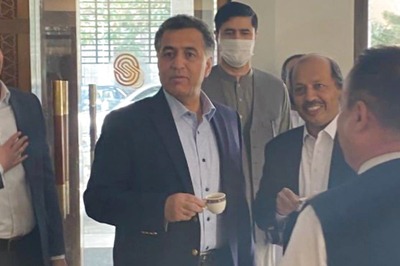
views
India is celebrating its 75th independence day today, August 15. In the period of 200 years of oppression, starting from 1757 (post the battle of Plassey) India went through several phases of struggle in the attempt to oust foreign domination. Finally, India got rid of colonial power rule in 1947. On the occasion of the joyous event of Independence day, let’s reminisce our rich history of freedom struggles by taking a look at the 5 important events that led to our country’s independence:
Revolt of 1857
The sepoy mutiny led by Mangal Pandey has to be one of the most crucial events in India’s road to achieve freedom. This movement was the first war of independence. It served as a turning point as it led to the termination of East India Company’s regime in Indian soil by the Government of India Act 1858 passed on August. The act formally led to the dissolution of the company in India post the revolt and went under the rule of British government.
Lucknow Pact
In December 1919 a treaty was signed between Indian National Congress and the Muslim League in Lucknow. According to the pact, both the parties agreed to allow representation to religious minorities in the provincial legislatures. The aim was to pressurize the British to adopt a more liberal approach and give Indians the authority to manage their own nation. This agreement proved to be a seminal accomplishment.
Non cooperation movement (September 1920-February 1922)
The 1919 horrifying incident of Jallianwala Bagh massacre was the reason behind the inception of the non cooperation movement. This 1920 movement marked an important phase in the timeline of freedom struggle. Led by Mahatma Gandhi and the Indian National Congress, this event challenged British authorities. According to the rules of this freedom movement, Indians would reject any British goods, and would buy only local handicrafts.
Civil Disobedience Movement
Launched in the Congress Session of December 1929, this movement was headed by Gandhiji. The objective of this rebellion was to completely disregard any orders of the British Government. Gandhiji had targeted January 26, 1930 to be celebrated as the Independence Day all across the country. The British unleashed brutality by firing bullets, killing and arresting protesters (including Jawaharlal Nehru, Gandhiji) to quash the movement.
Quit India movement
This 1942 event also known as the August movement came into being in the All India Congress Committee session in Bombay on August 8, 1942. Under the leadership of Gandhiji, this movement demanded immediate withdrawal of British from India.
Read all the Latest News, Breaking News and Assembly Elections Live Updates here.



















Comments
0 comment